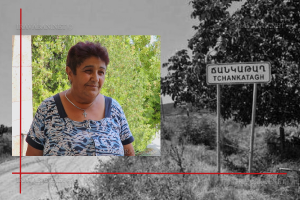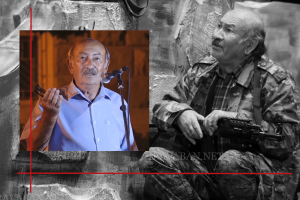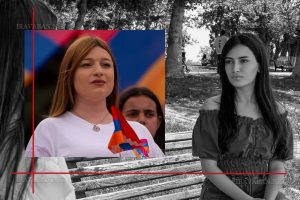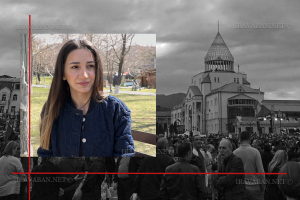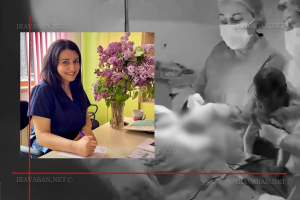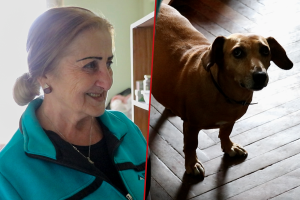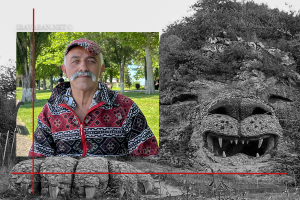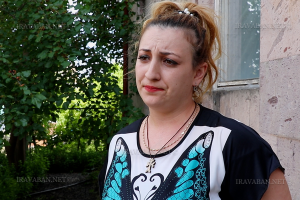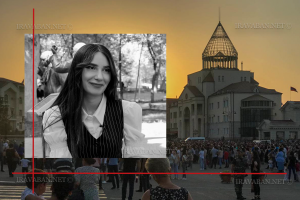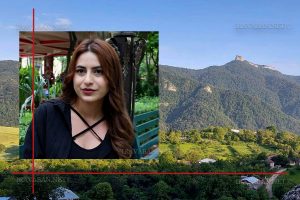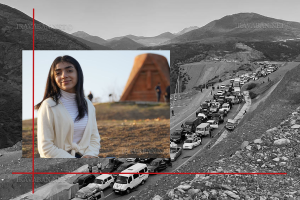Lusine Poghosyan, who was forcibly displaced from the occupied Republic of Artsakh told in the framework of “Artsakh: Armenian Genocide 2023. Stories of Survivors” documentary project of Iravaban.net that she was displaced from the Ivanyan Community of Askeran region.
She noted that since the illegal blockade of Artsakh, they had been waiting every day that the road would be opened and everything would be fine.
“It was delayed and a humanitarian crisis arose in Artsakh. Food, medicine and fuel were almost finished. The gas supply was interrupted; the electricity was cut off intermittently. Despite all that, we were firm, we were ready to resist, to fight, to endure hardships for the sake of the memory of our fallen boys, for Artsakh to remain Armenian, for us to live in our land. Even though the future was uncertain and hazy, we were waiting for some light to open. Unfortunately, the blockade ended on 19 September,” Lusine said.
She remembers that when the enemy unlesdhed another aggression against Artsakh, she thought that it was military exercise.
“The children were at school, when the noises continued, I realized that it was a war, I ran to school, the teachers had taken them to the basement. I went, looked for the children in the basement, that scene was terrible, half-starved children, stressed, scared. We stayed in the basement for a day and a half, when they said there was a ceasefire; I took my children and parents and returned home. I began collecting children’s clothes, necessary things and waited for some official announcement. We waited in uncertainty for several days, then they said that buses were allocating to transport people to Armenia. I understood that we have to leave Artsakh. On the morning of 25 September, I took my parents and children and we started the migration road. We crossed that hellish road in one and a half days,” our interlocutor said.
Lusine states that she left her childhood, memory, graves and future in Artsakh. “I brought only the keys to our house from Artsakh. As usual, I closed the door, expecting to go back.”
Our interlocutor also referred to the reintegration proposed by the Azerbaijani side.
“It is impossible to live together with Azerbaijanis. After so many victims, even more so, nothing will be forgotten. It is also excluded in the case of a certain country being a guarantor, because in 2020 we returned to Artsakh under the guaranty of Russian peacekeepers, but it can be said that the everything that took place happened with Russia’s permission. I think that if Russia wanted to, it could restrain Azerbaijan and maybe it would be different,” she said.
According to Lusine, she completely has no expectations from the international community.
“I was convinced of this during the blockade, when the civilized world was silently following the developments around Artsakh and Azerbaijan could ignore the resolutions and calls accepted by the same international community. Ignoring the statements, even ignoring the decision of the Hague International Court, Azerbaijan achieved its goal. I have no expectations,” Lusine said and emphasized that what happened in Artsakh was genocide.
According to her, they were forcibly displaced due to the threat of genocide.
“So many victims in one day, its genocide. It was terrible in Stepanakert, people were looking for their relatives, and there were victims everywhere. It was uncertain; we did not believe that we could ever leave Artsakh. It’s so uncertain, but we were waiting for some good news,” Lusine said.
When asked whether, if possible, she would like to apply to the International Criminal Court with the demand to bring Alev to criminal responsibility as a war criminal, she stated that the criminals should definitely be brought to justice.
“Not only Aliyev, but all the perpetrators of this genocide should be brought to justice, in order to prevent the repetition of this genocide in the future,” Lusine added.
Details in the video.
——————————————————————————————————————
“Artsakh: Armenian Genocide 2023. Stories of Survivors” documentary project of Iravaban.net is aimed at collecting the memories and testimonies of citizens forcibly displaced from Artsakh occupied by Azerbaijan, about the genocide of the Armenians of Artsakh committed by Azerbaijan, atrocities, the days of war, the path of deportation, etc.
Iravaban.net seeks help from citizens who will voluntarily agree to translate materials into different languages: Russian, English, French, Arabic, Persian, Turkish, Georgian, Chinese…
You can write to our e-mail address at: [email protected]
To donate for realization of the project: https://iravaban.net/en/become-a-supporter
Details in the video.
Armenian Lawyers’ Association is the author of the idea “Artsakh: Armenian Genocide 2023. Stories of Survivors” documentary project of Iravaban.net and is the owner of copyright of the materials created within the framework of the project. In case of using the materials produced within the framework of the project, it is necessary to obtain the written permission of the Armenian Lawyers’ Association.

